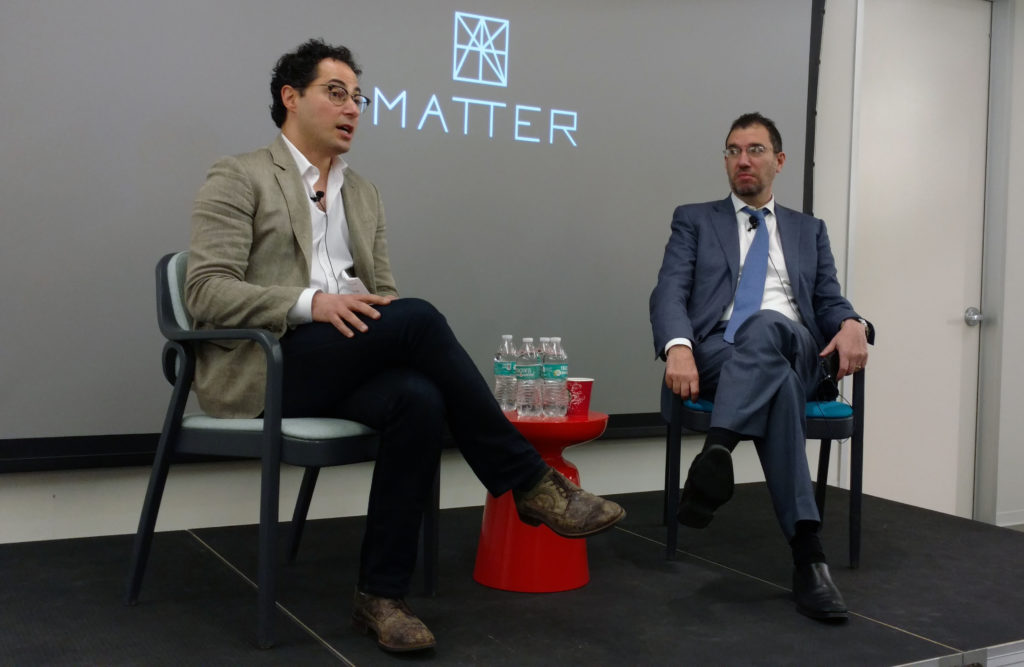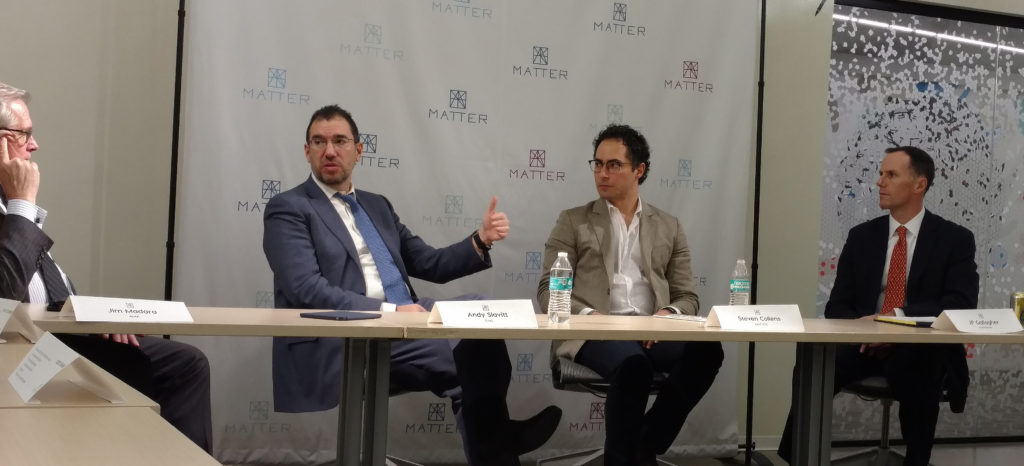CMS Administrator Andy Slavitt on the ACA, Healthcare Data, and Innovation in Healthcare
On Wednesday, December 7, 2016, MATTER welcomed the administrator of the Centers of Medicare and Medicaid Services (CMS), Andy Slavitt, for a discussion about the future of healthcare. During his interview with MATTER CEO Steven Collens, he touched on the future of the Affordable Care Act, how entrepreneurs can influence healthcare, and the growing impact of data and analytics.

The present and future of the ACA
Under the Affordable Care Act, 20 million Americans have gained health coverage and, according to Slavitt, “95 percent of metrics [to measure the effectiveness of the healthcare system] are higher now than eight years ago.” He is the first to acknowledge that, despite the gains, the ACA is far from perfect. There was much talk during the campaign about repealing the law, and there is significant uncertainty about what will happen under the new administration. Slavitt laid out two potential paths forward for the Trump Administration: to “take what we’ve accomplished so far and build on it… [or] start from scratch [with a] whole new approach and reset the rules.”
While there is mounting pressure on the incoming administration to make sweeping changes, Slavitt predicted that Trump’s team and the Republican majority in Congress will be more cautious in repealing the ACA than some think, reminding those in attendance that “senators don’t want to throw one-third of the economy into chaos, [or] restrict coverage for 30 million people.”
He also said that while he believes many pieces of the ACA will be kept, the parts that are repealed are likely to be replaced. Any replacement, he suggested, would need to do four things to be considered an improvement:
-
Cover as many people as the ACA
-
Give those people at least the same protections afforded by the ACA
-
Be as affordable for individuals as the ACA
-
Be as fiscally responsible for the system as the ACA
Slavitt also suggested that entrepreneurs and industry executives will have an important voice in influencing the direction the new administration will go. “[They] will want to listen to healthcare CEOs and the entrepreneurial community in lieu of healthcare industry lobbyists,” he said.
Entrepreneurial impact on the future of healthcare
Another major theme of Slavitt’s conversation was the value entrepreneurs bring to the healthcare industry. “You gotta be nuts to be an entrepreneur,” Slavitt – a former healthcare entrepreneur himself – joked to the gathered innovators at MATTER. “Particularly in healthcare.”
One area where he sees tremendous opportunity is in designing solutions to close disparities in the healthcare coverage Americans receive. Slavitt said that the next revolution in American healthcare will come from closing these gaps in treatment.

One way to close these gaps is to make sure people at risk for preventable health issues have access to transportation and flexible work schedules so they get the treatment they need when they need it. As is, too many folks miss a bus,
So if Slavitt were an entrepreneur, he’d “be going into those communities and making technologies to solve” the “missed bus problem” and those like it.
Big data’s massive influence
Data’s growing influence was a throughline of his presentation. Slavitt stressed its importance for entrepreneurs both designing new solutions and working with Electronic Medical Records (EMRs).
When discussing EMRs, Slavitt quipped that he’d “never seen an industry become an industry before they create satisfied customers,” referring to health systems’ widespread adoption of EMRs and clinicians’ disappointment with the technology. Physicians are frustrated that “nobody has paid attention to their workflow,” throughout EMRs’ growth.
Here, too, entrepreneurs can influence the direction of the healthcare industry, said Slavitt. He wants CMS to help “level the playing field” and allow data to flow freely to wherever the patient is, rather than keeping it siloed within disparate systems, which would better allow innovators to improve the experience for both patients and physicians.
Slavitt also encouraged entrepreneurs to use healthcare data released by the Obama administration, including a newly-released store of data from CMS that tracks the list prices of 5,000 drugs over the last five years.
Overall, Slavitt was tentatively optimistic about the future of CMS in spite of the current political climate. And even if massive changes are coming to American healthcare, he is confident that the influence of entrepreneurial thinking and data solutions will continue to grow unimpeded. While only time can prove him right or wrong, his perspective was very much appreciated by the entrepreneurs and healthcare innovators gathered at MATTER.


